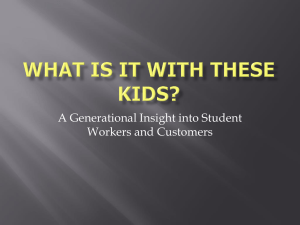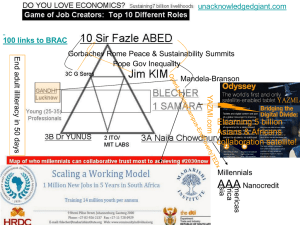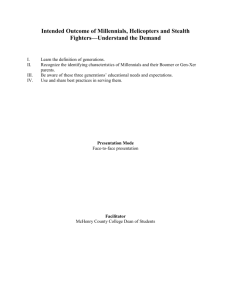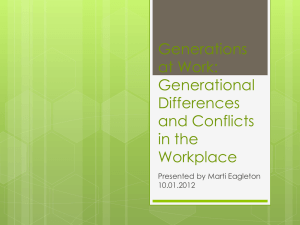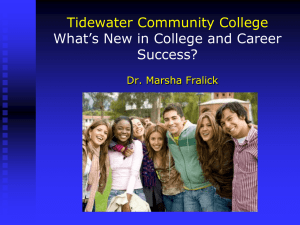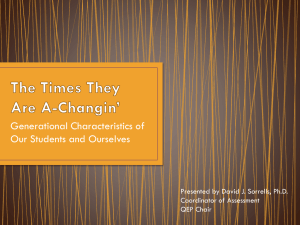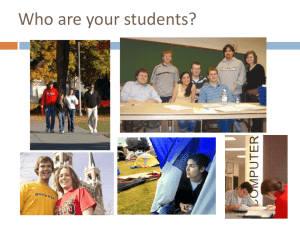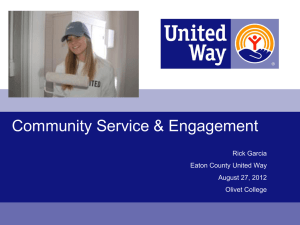Click here for - Philanthropic Service for Institutions
advertisement
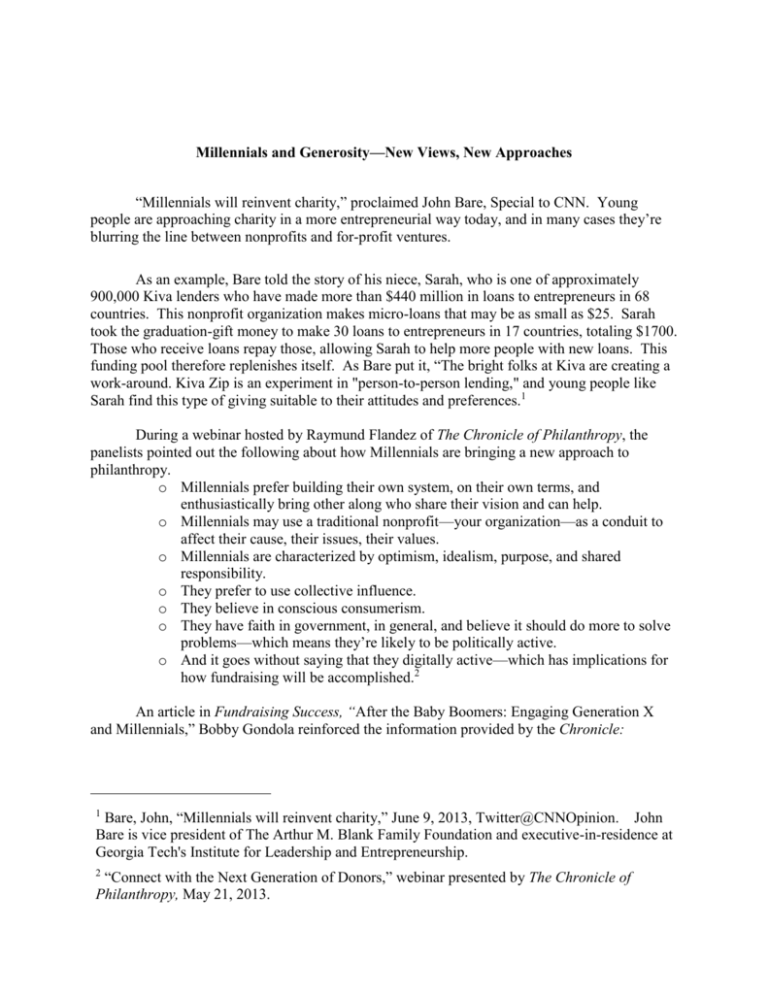
Millennials and Generosity—New Views, New Approaches “Millennials will reinvent charity,” proclaimed John Bare, Special to CNN. Young people are approaching charity in a more entrepreneurial way today, and in many cases they’re blurring the line between nonprofits and for-profit ventures. As an example, Bare told the story of his niece, Sarah, who is one of approximately 900,000 Kiva lenders who have made more than $440 million in loans to entrepreneurs in 68 countries. This nonprofit organization makes micro-loans that may be as small as $25. Sarah took the graduation-gift money to make 30 loans to entrepreneurs in 17 countries, totaling $1700. Those who receive loans repay those, allowing Sarah to help more people with new loans. This funding pool therefore replenishes itself. As Bare put it, “The bright folks at Kiva are creating a work-around. Kiva Zip is an experiment in "person-to-person lending," and young people like Sarah find this type of giving suitable to their attitudes and preferences.1 During a webinar hosted by Raymund Flandez of The Chronicle of Philanthropy, the panelists pointed out the following about how Millennials are bringing a new approach to philanthropy. o Millennials prefer building their own system, on their own terms, and enthusiastically bring other along who share their vision and can help. o Millennials may use a traditional nonprofit—your organization—as a conduit to affect their cause, their issues, their values. o Millennials are characterized by optimism, idealism, purpose, and shared responsibility. o They prefer to use collective influence. o They believe in conscious consumerism. o They have faith in government, in general, and believe it should do more to solve problems—which means they’re likely to be politically active. o And it goes without saying that they digitally active—which has implications for how fundraising will be accomplished.2 An article in Fundraising Success, “After the Baby Boomers: Engaging Generation X and Millennials,” Bobby Gondola reinforced the information provided by the Chronicle: Bare, John, “Millennials will reinvent charity,” June 9, 2013, Twitter@CNNOpinion. John Bare is vice president of The Arthur M. Blank Family Foundation and executive-in-residence at Georgia Tech's Institute for Leadership and Entrepreneurship. 1 “Connect with the Next Generation of Donors,” webinar presented by The Chronicle of Philanthropy, May 21, 2013. 2 “By creatively engaging younger donors, they become part of a movement — they bring friends to events; get co-workers to volunteer; and provide expertise in finance, marketing and law. An organization that does well while also doing good pulls the younger crowd, but these millennials are not just donors — they’re volunteers and partners in carrying out the social profit’s work.”3 Millennials require immersive experience, according to the Chronicle webinar. Nonprofits need to use all types of media and humanize the movement. Pew Research on Social & Demographic Trends issued a report that stated Millennials are “Confident. Connected. Open to Change.” “Generations, like people, have personalities, and Millennials—the American teens and twenty-somethings who are making the passage into adulthood at the start of a new millennium—have begun to forge theirs: confident, self-expressive, liberal, upbeat and open to change.”4 Some of the best sources for additional information are the Pew Research report, listed in the footnote; the Millennial Impact Report published in 2012 by Achieve and Johnson Grossnickle and Associates; and Fundraising and the Next Generation, by Emily David, published by Wiley. Gondola, Bobby, “After the Baby Boomers: Engaging Generation X and Millennials,” Fundraising Success, June 6, 2012. 3 4 Pew Research Center, http://www.pewsocialtrends.org/ “Millennials: A Portrait of Generation Next.”

